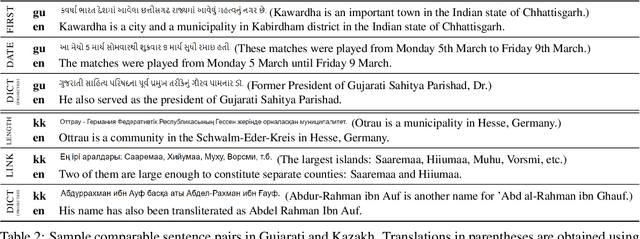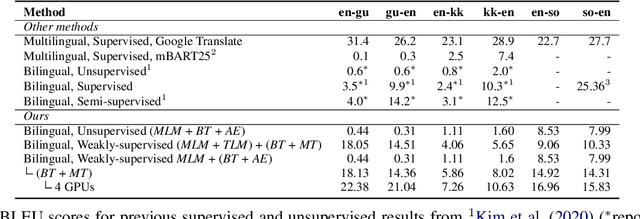Low-Resource Machine Translation for Low-Resource Languages: Leveraging Comparable Data, Code-Switching and Compute Resources
Paper and Code
Mar 24, 2021



We conduct an empirical study of unsupervised neural machine translation (NMT) for truly low resource languages, exploring the case when both parallel training data and compute resource are lacking, reflecting the reality of most of the world's languages and the researchers working on these languages. We propose a simple and scalable method to improve unsupervised NMT, showing how adding comparable data mined using a bilingual dictionary along with modest additional compute resource to train the model can significantly improve its performance. We also demonstrate how the use of the dictionary to code-switch monolingual data to create more comparable data can further improve performance. With this weak supervision, our best method achieves BLEU scores that improve over supervised results for English$\rightarrow$Gujarati (+18.88), English$\rightarrow$Kazakh (+5.84), and English$\rightarrow$Somali (+1.16), showing the promise of weakly-supervised NMT for many low resource languages with modest compute resource in the world. To the best of our knowledge, our work is the first to quantitatively showcase the impact of different modest compute resource in low resource NMT.
 Add to Chrome
Add to Chrome Add to Firefox
Add to Firefox Add to Edge
Add to Edge